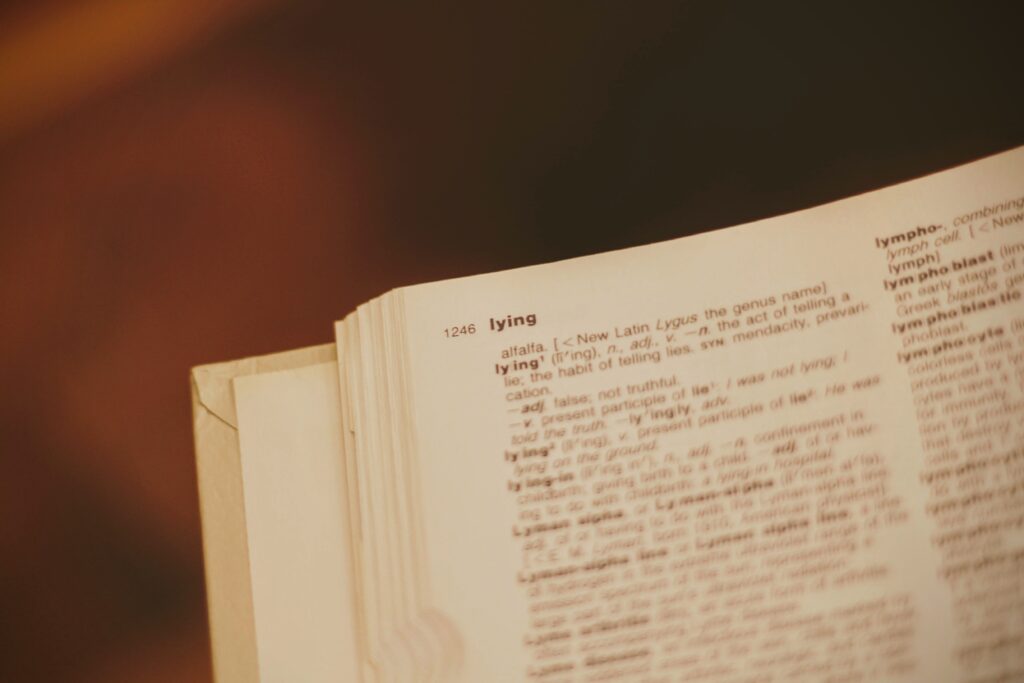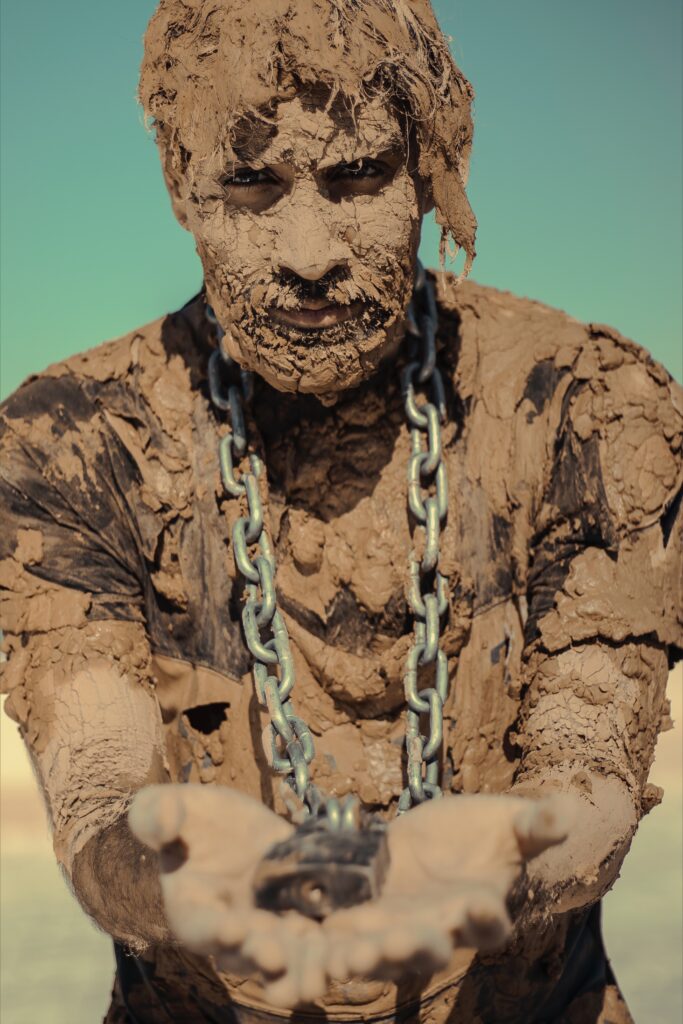Are You Confident You are Shining the Light of Christ in this World?
Learn How Living Above Reproach Can Significantly Increase Your Confidence Even in the Midst of Trials

Have you ever stopped and listened to children as they talked among themselves when they didn’t think any adults were listening? Not long ago I overheard a discussion between two children who didn’t realize I was near them. The boy was about 13 years old and he was explaining to his 11-year-old sister how deceit is different than disobedience. Apparently, his sister had caught him doing something she knew he wasn’t permitted to do. And somehow, he was trying to convince her that he wasn’t being disobedient. He was just being a bit deceitful by not telling anyone what he was doing, which was different and not as bad as disobedience.
I recall many years ago when I was a teacher and learned how many junior high and high school students justified certain deceptions. For example, they didn’t find anything wrong with cheating on homework and exams. And telling “white lies” was certainly fine as long as no one got hurt. It seems this 13-year-old boy I overheard was trying to impart similar “wisdom” to his younger sister. I must admit, when I heard this discussion, I had to take the opportunity to explain to both of the children how important it is to live above reproach and the benefits of doing so. We can have confidence that we will shine a light for Christ to the world when we live above reproach, even in the midst of trials.
Living Above Reproach
The apostle Paul taught the congregation of the Church in Philippi how they should live as Christians. We are to be blameless and innocent by doing all things without complaining or disputing and we are to hold tightly to the Word of God (Philippians 2:14-16).
Paul also taught Titus, a young pastor, to teach his congregation how to live the Christian life. He is to do so by what he speaks and how he lives as an example before them (Titus 2:1, 7). Paul explains if we live according to the instructions provided in Titus 2:2-6, showing integrity, reverence, incorruptibility, and we use sound speech that cannot be condemned, then when an opponent speaks against us, that opponent would be ashamed. Titus 2:1-8 can be boiled down to two simple instructions: Let the fruit of the Spirit be evident in our lives; and teach those that come behind us to pass God’s truths to our families in love and patience.
Basically, these two scriptures (Philippians 2:14-16 and Titus 2:1-8) can be summarized by saying that as Christians we should live above reproach.
Think about what “above reproach” means to you. The King James Version often uses the term “blameless.” To live blamelessly is to live above reproach.
It may be easier to describe living above reproach by describing the consequences. I always taught my children that if they live above reproach, living in a way that doesn’t even come close to things that are considered wrong or ungodly, then if anyone would accuse them of something wrong or ungodly, everyone else would be shocked and not believe it.
As an example, if you never lie or even allow incorrect perceptions of things by keeping silent, then if someone accuses you of lying, no one is likely to believe the accusation.
Let’s look at a couple of examples in scripture to see if this holds true.
Jacob
In Genesis 31:26-30 we read about Jacob, after he had worked for Laban many years, secretly fled. Remember that Jacob’s name means “deceiver.” Also, he went to Laban’s house because he was fleeing from his brother Esau. Jacob had deceived Esau twice. First, he traded a bowl of stew for Esau’s birthright. Then he disguised himself as Esau in order steal his blessing from their father Isaac.
In Genesis 31 we read about Jacob after he worked for Laban for 20 years. He worked for 7 years for Laban’s daughter Rachel, but Laban gave him Leah instead. So, he worked another 7 years for Rachel and continued on afterward until he had worked there for 20 years.

While still at Laban’s house, Jacob had overheard Laban’s sons accusing Jacob of deceitfully taking away some of Laban’s property (the speckled sheep) and Jacob noticed that Laban’s attitude toward Jacob had changed. So, he fled to return to the Land of Canaan. Laban went after Jacob and accused him of stealing away with Laban’s daughters, grandchildren, and his gods.
Did Jacob live a life above reproach?
No. He deceived is brother and was still viewed as being deceitful. So, when Laban’s gods were missing, Laban automatically thought that Jacob had taken them.
Jacob hadn’t taken them. You might remember that it was Rachel who took them. But because he did not live a life above reproach, he was automatically suspected of wrongdoing when something came up missing.
This is an example of the converse of my theory of living above reproach. It shows that if you don’t live above reproach, you will likely be suspected and accused of wrongdoing when something is amiss, even if you didn’t do it.
Joseph
If we continue reading in Genesis, we find the story about Joseph. Joseph lived a life above reproach. Even if we go through his entire story, all the way back to when he still lived in his father’s house, the only fault we would find in him is that he may have had a bit of pride when he received the coat of many colors from his father and when he had dreams about his brothers bowing down to him.
In Genesis 39, we learn that Joseph had risen to a place of authority in Potaphar’s house. Potaphar’s wife was apparently quite attracted to Joseph and attempted to seduce him. But Joseph wisely ran from her. Unfortunately, he left behind his garment (Genesis 39:7-12).
Potaphar’s wife falsely accused Joseph of having tried to seduce her. If my theory is correct,Potaphar would not have believed his wife because Joseph had lived a life above reproach. Potaphar was supposed to doubt what his wife was saying when she accused Joseph of such horrible things. But that didn’t happen. Instead, Potaphar got angry and Joseph was put into prison.
What? That wasn’t supposed to happen. Joseph lived above reproach.
Trials
Well, I don’t think Joseph’s experience disproves my theory. My theory remains sound until God steps in and has a greater purpose in mind. We can still benefit from living above reproach. When doing so, we find that we are seldom accused of things when things go wrong. And if we are falsely accused, we generally find others quick to believe us instead of the accuser.
In Joseph’s situation, as with us sometimes, God allowed a trial in his life.

God allows trials in our lives to change, develop and impact our character. Ultimately, God uses trials to conform us to His image; we become more Christ-like. God also uses trials to prepare us for the tasks that he will ask us to do in the future. The apostle Peter explained that trials are no strange things for Christians and we are to rejoice in them because ultimately God’s glory will be revealed and we will be blessed (1 Peter 4:13-14).
It was while Joseph was in prison that he interpreted dreams for a couple of Pharoah’s officers (the chief of the butlers and the chief of the bakers). It was because he had the opportunity to interpret those dreams and the interpretations came true, that Joseph was called upon to interpret one of Pharoah’s dreams. Then, Pharoah placed Joseph in charge of all the land of Egypt, second only to Pharoah himself. Because of this position, Joseph was able to save his family when a severe famine occurred.
Thinking back on Joseph’s life, although it was hard, with many trials that Joseph didn’t understand, when he saved his family during the famine, God’s glory was revealed and the entire family, which became the nation of Israel, was glad with exceeding joy.
Consequences
When we live our lives above reproach, we are bearing the name of Christ. If we are reproached, meaning that we suffer some shame, disgrace, or something that brings rebuke or censure upon us, even falsely, we should look at the trial and pray that God will show us what He is preparing us for. Even if He doesn’t reveal that to us, just as Joseph was never told what God was doing in his life, we should remember how God worked in Joseph’s life and trust that He is preparing us for His purpose.
Going back to the scriptures we started with (Philippians 2:14-15 and Titus 2:7-8), there are three consequences for living a life above reproach:
- We will be the light in the world;
- The Word of God will not be blasphemed/profaned because of our lives; and
- Our adversaries in the world will have nothing evil to say about us.
Even though one of the consequences of a life lived above reproach is that our adversaries will have nothing evil to say about us, as we have seen with Joseph, they still may raise false accusations. But when that happens, we can remain above reproach by trusting God, being faithful to His Word, and eagerly watching for His glory to be revealed.
I encourage you to analyze your own life and determine if you are living above reproach. Ask God to show you anything in your life that needs to be corrected. Pray like King David did in Psalm 139:23-24, “Search me, O God, and know my heart: try me, and know my thoughts: And see if there be any wicked way in me, and lead me in the way everlasting.” You can have confidence that you are shining a light for Christ to the world when you live above reproach, even in the midst of trials.


